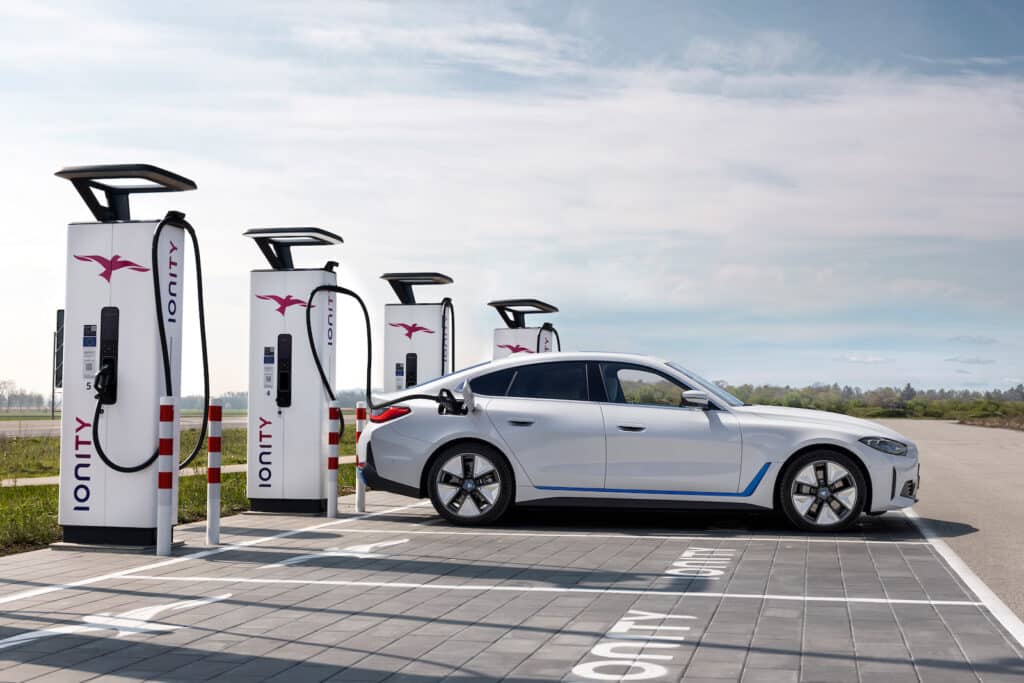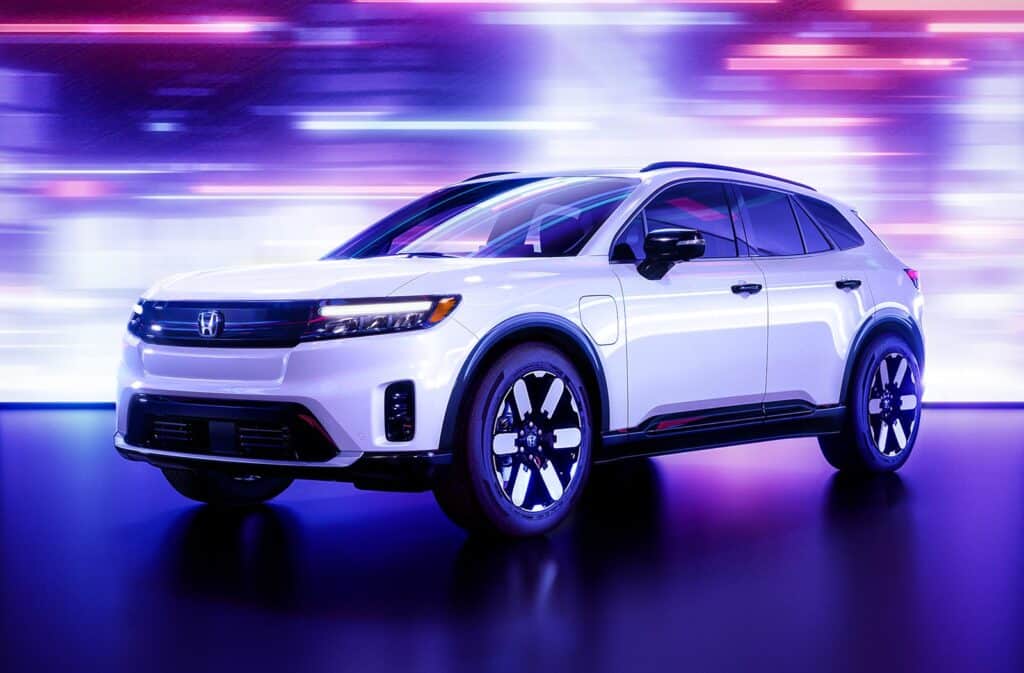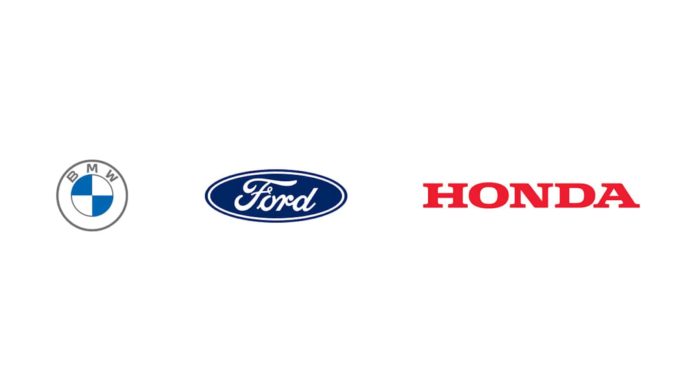BMW Group, Ford Motor Co. and American Honda Motor Co. Inc. announced an agreement to create a new EV charging company: ChargeScape LLC. The three founding automakers will own equal shares of the new company, which will perform arbitrage of energy flows between EVs and the grid.
The idea of automaker-aligned public charging networks has been catching on as executives realize that charging can create ongoing revenue streams measured in billions of dollars per year. Tesla’s supercharger network has recently been estimated to be worth up to $20 billion per year. But ChargeScape appears to be something completely different. The new company will manage V2G (Vehicle-to-Grid) energy flows to provide additional grid power during peak demand and charging EVs at more advantageous times.
“Electric grid reliability and sustainability are the foundation for an EV powered future,” said Thomas Ruemenapp, vice president, Engineering, BMW of North America LLC. “ChargeScape aims to accelerate the expansion of smart charging and vehicle-to-everything solutions all over the country, while increasing customer benefits, supporting the stability of the grid and helping to maximize renewable energy usage. We’re proud to be a founding member of ChargeScape and are looking forward to the opportunities this collaboration will create.”
The companies forming ChargeScape are claiming that EV customers and the electric utility industry will both benefit from the company’s services.
“ChargeScape will unlock entirely new value that EVs can provide to the electric grid, while enabling EV customers to earn financial benefits through a variety of managed charging and energy-sharing services never before possible with traditional gasoline-powered vehicles,” states the press release announcing the new company. The formation of ChargeScape is still pending regulatory approvals, however, the automakers expect the new company to be operational by early next year.

Making your EV part of the grid
It appears that home charging will be the major focus of the ChargeScape business. According to the partner companies, the new entity’s platform will give electric utilities access to EV battery energy from customer EVs when plugged in. For their part, participating EV customers will have the potential to earn financial benefits by charging at “grid-friendly” times through flexible and managed schedules.
Electric vehicle customers will also eventually have the opportunity for even more significant impact by sharing the energy stored in their EV batteries with the grid during times of peak demand through V2G applications.
ChargeScape plans to enable the smart use of plugged-in EV batteries by securely providing energy data to electric utilities and system operators like aggregated demand response, alignment of charging and EV battery utilization with off-peak, low-cost hours and the availability of high renewable energy.
“Electric vehicles are unlocking entirely new benefits for customers that can save them money while supporting grid resiliency and increase the use of clean, renewable energy,” said Bill Crider, global head of charging and energy services, Ford Motor Co. “ChargeScape will help accelerate the true potential of the EV revolution by providing significant benefits to both utilities and EV customers through smart vehicle-to-grid services.”
Getting in on carbon reduction

Additionally, ChargeScape says it can play a role in helping to decarbonize the grid. The partnership claims its efforts will reduce EV customers’ personal carbon footprints by utilizing electricity that comes from more readily available renewable energy sources, such as wind or solar, but that service is already available from many utilities. However, the company insists that participating EV customers will always remain in control of their charging and energy decisions.
“As Honda seeks to achieve our global goal of carbon neutrality, we are counting on this platform to create new value for our customers by connecting EVs to electric utilities, strengthening grid resources and reducing CO2 emissions,” said Jay Joseph, vice president of Sustainability & Business Development, American Honda Motor Co. Inc.
“With automakers accelerating toward the electrified future, we must find solutions like ChargeScape that enable all stakeholders to work together for the good of our customers, society and our industry by enabling greater use of renewable energy for and from mobility.”
A one-stop shop to reach EV owners
If you’re wondering why the automakers are needed in this effort, you’re not alone. Customers can charge at times of lower demand now and receive better pricing for their Kilowatt Hours used.
ChargeScape’s pitch is that will bring managed charging benefits to more EV customers and can eliminate marketing and outreach costs for utilities trying to reach their individual customer bases. BMW Group, Ford Motor Co. and American Honda have direct, multi-channel communication with their EV customers, solving a central problem for utilities that typically do not know or have an easy and cost-effective way to identify the EV customers in their service territory.
Additionally, by leveraging automaker telematics, ChargeScape intends to provide managed charge scheduling through vehicle connectivity without requiring Wi-Fi-enabled charging stations. This will support the many EV customers who do not use “smart” chargers at home, as their EVs would otherwise be unreachable for grid services.

